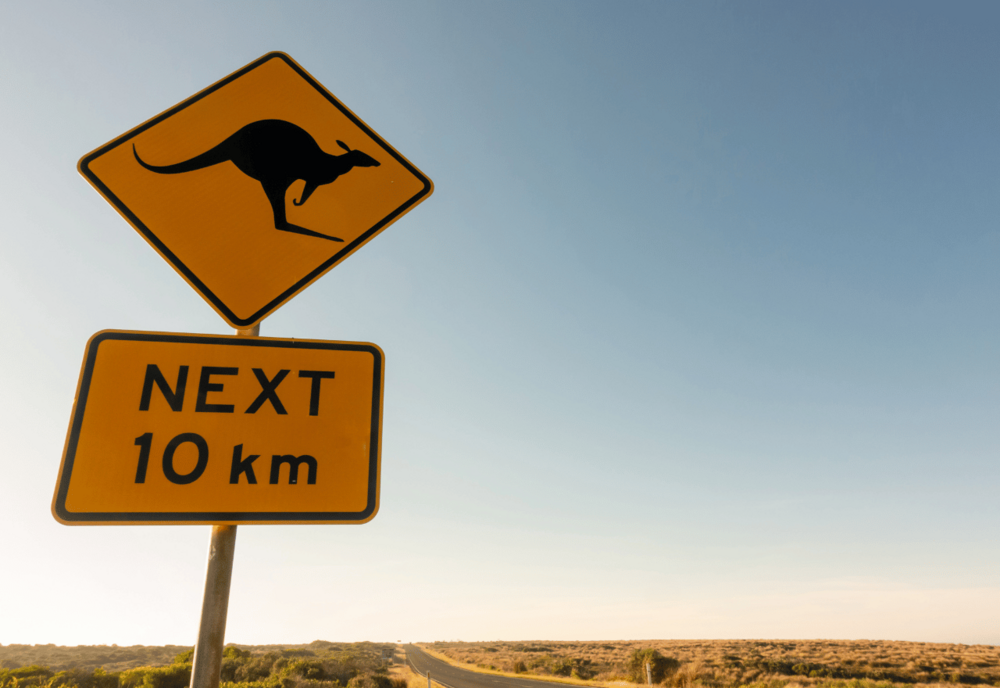Clever cars will shoo the roo. Can it be true?
Kristin Murdock
02 April 2024, 2:40 AM
 Volkswagen have come up with a device that replaces the car's badge and helps deter kangaroos.
Volkswagen have come up with a device that replaces the car's badge and helps deter kangaroos.Collisions with kangaroos are commonplace across the western plains and, all up, carry a big repair bill of hundreds of thousands of dollars.
More concerning is the risk of injury to both humans and animals from these unexpected crashes.
Now, one car manufacturer is including a built-in feature which they say will help protect kangaroos, drivers and vehicles.
Research from Suncorp Group insurer AAMI reveals that around half of Aussies have collided with a kangaroo or other wildlife while driving.
Analysis of over 17,000 AAMI animal collision claims across the country between 1 January and 31 December 2022 revealed that winter is the worst time of year for animal collisions, with almost one in three (30 per cent) accidents involving wildlife taking place in the cooler months from June to August. This means the time of highest risk is fast approaching.
It would seem the perfect time for car manufacturer Volkswagen to unveil their latest innovation - a kangaroo deterrent called RooBadge.
It is a simple device that replaces the iconic front badge on the VW and emits a warning signal to wildlife which is a mixture of natural and artificial sounds projected in a high frequency audio signal.
There have been similar products on the market over the years, but the company say their version has been the subject of extensive trials and now permission has been obtained from the University of Melbourne Office of Research Ethics and Integrity to move into Stage Four trials, involving kangaroos in the wild.
Fortunately, this "wild kangaroo trial" does not involve driving around waiting for kangaroos to jump across the road.

For over six months, Volkswagen placed several remotely monitored vehicles in locations where kangaroos migrate.
The vehicles were equipped with directional speakers, motion sensors, and 360-degree cameras, so when a kangaroo passed in front of the vehicle, a random sound could be played, with the kangaroo’s reaction recorded on video and uploaded to the cloud for review.
"We captured several positive reactions to our sounds through unseasonably wet and dry weather as kangaroos cleared away from the vehicle. These positive results led to a submission to the Animal Ethics Committee to allow us to use moving vehicles to increase the frequency of encounters with kangaroos," Volkswagen said.
While there have existed for some time supposed deterrent devices, none have been scientifically developed or proven.
“RooBadge does something no kangaroo deterrent has been able to do before,” Melbourne University’s Associate Professor Graeme Coulson said. “It’s difficult to produce a single sound that will deter all kangaroos, because the species are different to each other. Using advancement in car technology we can change the sound deterrent by GPS location."
“We have worked on sounds that will be meaningful to Eastern Grey Kangaroos, things like dingo calls, alarm calls made by birds and the alarm thumps that kangaroos make to warn each other. We will then be able to tweak the sound for other species."
The innovation sounds like a positive move for motorists and great for kangaroo welfare as well. The WIRES animal rescue group have weighed in with their thoughts.
WIRES spokesperson, John Grant, said: “Kangaroo collisions are increasing every year and with more motorists on the roads over the Easter holiday period we are expecting a spike in rescue calls for injured adults and displaced joeys. WIRES is grateful to automotive companies like Volkswagen for researching and developing solutions to better protect both our kangaroos and motorists.”
The University of Melbourne’s Dr Helen Bender, whose research has been used extensively in this project, said the technology can be adapted to other animals.
“Roadkill is a problem all around the world. What’s interesting about deer relative to kangaroos is that they’re very similar in body size, head size, and ear size," she said. "What we know from science is that the ear shape in the head shape tells us that they probably have similar hearing. ranges. So, whatever we learn has transferability to the deer as well.”
If you come across an injured wild animal that hasn't managed to avoid an oncoming car, or is in distress for any other reason, be sure to call the Wildlife Rescue Line: 13 000 WIRES or 1300 094 737.



